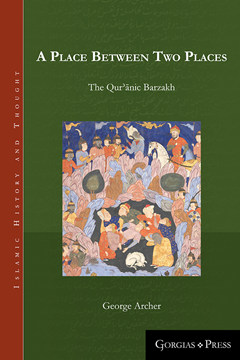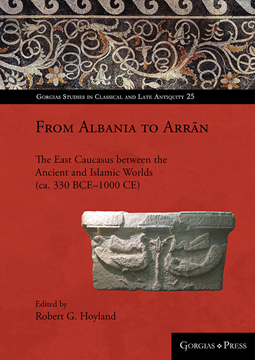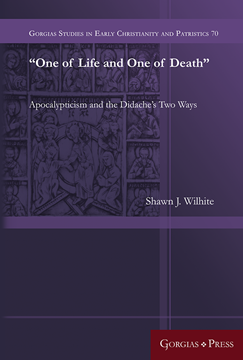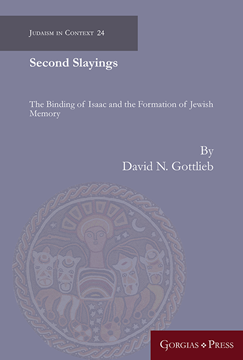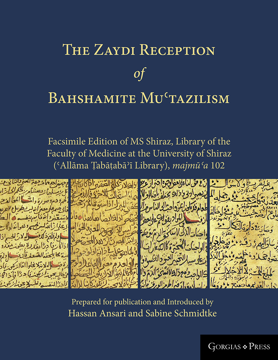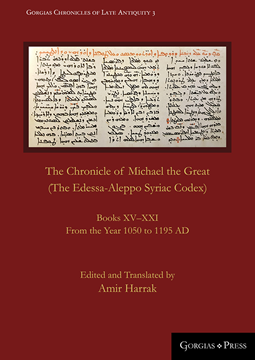A Place Between Two Places (paperback)
The Quranic Barzakh
Series: Islamic History and Thought 1
ISBN: 978-1-4632-3987-9
For believers in a resurrection of the body, there arises the question of what happens after death but before the Last Day: the intermediate state. For most Muslims, the intermediate state is the barzakh. It is a fantastical and frightening time in the grave. The present study will examine where the belief in the barzakh comes from through a study of the Qur'an.
$118.00 (USD)
From Albania to Arrān
The East Caucasus between the Ancient and Islamic Worlds (ca. 330 BCE–1000 CE)
Edited by Robert Hoyland
ISBN: 978-1-4632-3988-6
The first ever study in English dedicated to Albania in Late Antiquity to the Medieval period.
$114.95 (USD)
“One of Life and One of Death”
Apocalypticism and the Didache’s Two Ways
ISBN: 978-1-4632-4025-7
This book explores the apocalyptic influence upon the Two Ways metaphor in antiquity and more particularly the influence of the Two Ways in the Didache as veering from an apocalyptic worldview. The argument includes essential critical evaluation of the apocalyptic genre and assesses the apocalyptic features in ancient Two Ways texts. The predominant focus of the book will document and critically assess how the Didache veers from maintaining an apocalyptic worldview in its expression of the Two Ways (Did. 1–6).
$114.95 (USD)
Second Slayings
The Binding of Isaac and the Formation of Jewish Memory
Series: Judaism in Context 24
ISBN: 978-1-4632-4026-4
In Second Slayings: The Binding of Isaac and the Formation of Jewish Memory, David N. Gottlieb explores the decisive - and, until now, under-appreciated - influence exerted on Jewish memory by the Akedah, the Binding of Isaac narrative in the Book of Genesis. Through the lenses of hermeneutics, literary and social theory, and history, Gottlieb reveals the ways in the Akedah narrative models the act of interpretation as a means of recovery from and commemoration of crisis - a strategy that has penetrated every aspect and era of Jewish life.
$114.95 (USD)
The Zaydi Reception of Bahshamite Muʿtazilism Facsimile Edition of MS Shiraz, Library of the Faculty
Introduction by Sabine Schmidtke & Hassan Ansari
ISBN: 978-1-4632-4029-5
Iranian libraries hold only few manuscripts that testify to the extended and intensive Muʿtazilite past in the various centers of Zaydi scholarship in the Caspian region, in Ḫurāsān, and in Rayy. Among the few Muʿtazilite Zaydi works preserved in the libraries of Iran is a miscellany held by the library of the Faculty of Medicine at the University of Shiraz (ʿAllāma Ṭabāṭabāʾī Library). The maǧmūʿa, a facsimile of which is included in the present publication, was written between 673/1274-75 and 676/1277 and contains doctrinal works by Imāmi and Zaydi theologians from both Iran and from Yemen. Most of the codex consists of a theological summa, a taʿlīq that had been composed or transcribed by one Abū Ṭāhir b. ʿAlī al-Ṣaffār which was based on the Kitāb al-Uṣūl by Abū ʿAlī Muḥammad b. Ḫallād al-Baṣrī, the distinguished disciple of the Muʿtazilite theologian and founder of the Bahšamiyya, Abū Hāšim al-Ǧubbāʾī (d. 321/933), with an unknown number of commentary layers in between.
$290.00 (USD)
The Chronicle of Michael the Great (The Edessa-Aleppo Syriac Codex)
Books XV–XXI. From the Year 1050 to 1195 AD
Edited and Translated by Amir Harrak
Series: Gorgias Chronicles of Late Antiquity 3
ISBN: 978-1-4632-4031-8
Michael the Great was elected patriarch of the Syriac Orthodox church in a most instable period. He nevertheless, found time, clarity of mind, and determination to write a voluminous world chronicle, which he completed four years before he died in November 7, 1199. The present edition and its translation begin with Book XV and end with Book XXI, the last Book in the Chronicle, thereby covering more than 160 years, from AD 1031 to AD 1195.
$215.00 (USD)
